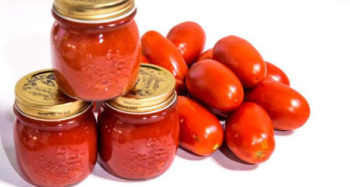
The Union of Tomato Paste Manufacturers in Nigeria has raised alarm over the danger of the foreign exchange policy on the industry. They said that the once vibrant industry might cease to exist next year if the Central Bank of Nigeria (CBN) did not amend its policy on forex to exclude triple concentrate tomato paste from the scope of the 41 items under the restricted list.
The union raised the alarm through its spokesperson, Nnamdi Nnodebe. Nnodebe, said: “While trying to heal the economy, the pillars that hold the economy together are being removed. Pillars such as the tomato industry are invaluable to growing a vibrant economy. The total investment in the packing manufacturing sector of tomato paste is about N19 billion. The economy cannot afford to lose such a huge industry that provides millions of direct and indirect jobs for Nigerians. The fact is this industry that grew to be the 13th largest in the world and second largest in Africa might die before the second quarter of next year if the ban on forex is not lifted.”
“The unavailability of tomato paste triple concentrate for the industry will grind production to a halt; meaning millions of people who depend on the industry for their livelihood will lose their jobs or have reduced incomes. The impact of this on the economy will be massive and negative as consumer behaviour will also be influenced leading to low purchase of goods in all sectors, not just tomato. These workers also patronise electronics shops, banks, petrol stations, they pay taxes etc. but they will no longer be able to fulfill all these.”
The value of imported tomato paste in Nigeria used to be about 170 million USD (before the CBN ban on 41 items). The imported triple concentrate tomato paste used as raw material by the packers used to be around $50 million out of the $170 million (2014). The imported concentrated raw material is then further processed in order to make it available for the consumers into products such as consumer packs of tomato paste, ketchup, sauces etc.
“It makes better economics to import the raw materials that will enable production, grow the economy and keep jobs rather than importing the finished products or frustrating efforts to get the raw materials, thereby rendering millions jobless which might further kill the economy. The local packing industry can also form the hub for exports to the hinterland countries as there are adequate local capacities to more than cater to the domestic requirement,” Nnodebe said.